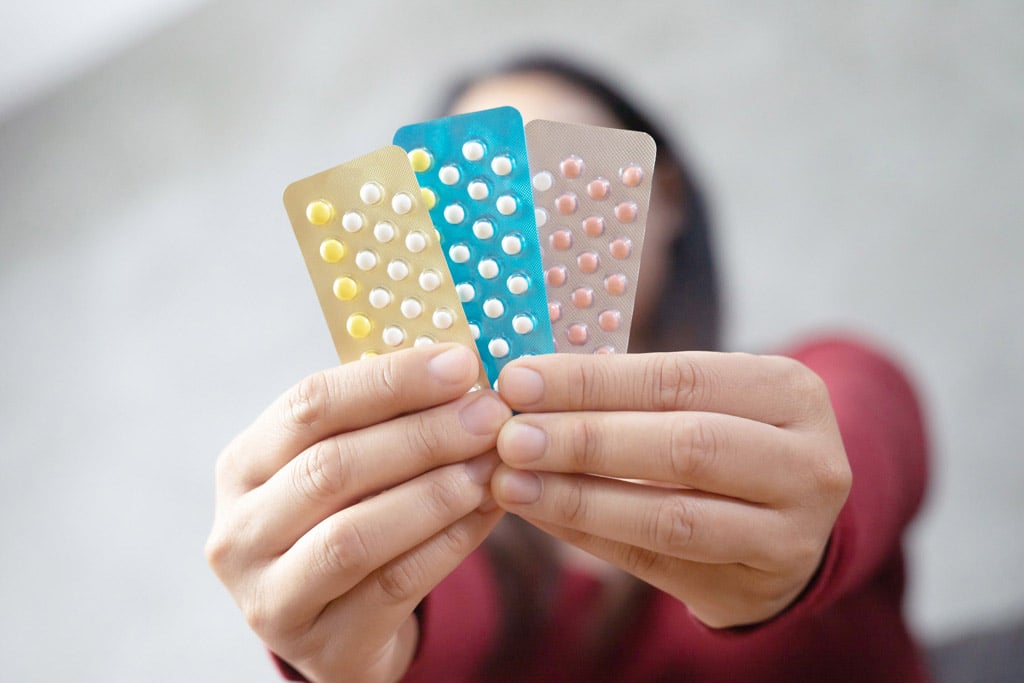Contraception (Pills, IUD, Implanon, Depo, Mirena) in Singapore

There are so many contraceptive options to choose from, it can be hard to decide which one is best for your needs. With many factors to consider, we are happy to sit down and discuss the options with you. You can also read some further information below on some of the contraception options available at IMC.
Intrauterine Contraceptive Device (IUCD) (Copper)
The Copper IUD is placed into the uterus and works by preventing fertilisation by hampering sperm motility, preventing the implantation of an embryo.
Pro’s
- Low failure rate – 0.6-0.8%
- Lasts 3 – 5 years, no need to remember pills
- Suitable for busy lifestyle
- Quick return of fertility
- No hormones, can be used in women with certain medical conditions
Con’s
- Invasive method, needs to be inserted by a trained doctor
- Initial periods may be heavier and more painful (usually normalises after a few cycles)
- Spontaneous expulsion can occur – need to check for string
- Does not provide protection against STDs, in fact pelvic infection is more likely if multiple partners
- Sting can sometimes be felt during intercourse
Oral Contraceptive Pill (OCP) – Combined
There are many different contraceptive pills available, if you’re interested in taking the OCP we can help you decide the best option for you. Typically, the OCP is most effective when taken at the same time every day. The OCP works by preventing the release of eggs from the ovaries. We offer a wide variety of OCP’s at our clinics and we can also order some medications in.
Pro’s
- Controlled periods – more regular, lighter and less painful
- Health Benefits
- Slight decreased risk of Cervical or Ovarian Cancer
- Relieves PMT
- Can be used to treat acne
- Reduces pelvic infections, anaemia and benign breast lumps
- Controlled by female
Con’s
- Need to remember to take the pill daily
- Health Risks:
- Slight increased risk of breast and womb cancers
- Slight risk of hypertension, heart attack and stroke
- Risk of blood clots
- Interaction with some medications
- Liver diseases
The emergency contraception should be used ideally within 72 hours of intercourse. There are options that can be taken within 5 days. The IUCD can also be discussed as an emergency contraception. This method is not to be used as regular contraception because of side effects and failure rate.
Progesterone only methods work by changing the consistency of cervical mucus to prevent sperm penetration and reduces motility, so prevents fertilisation. Some Progestogen only pills can also prevent ovulation. The pill needs to be taken continuously.
Pro’s
- Can be used by some women who cannot use oestrogen eg. breastfeeding mothers, history of hypertension, migraine, blood clot and smokers.
- Reduces period pain
- Very low dose hormone
- Taken continuously
Con’s
- Irregular Periods/spotting
Pro’s
- Failure rate 0.2-0.6%
- Relatively passive, safe and reliable method
- Cost effective
Con’s
- Inconvenient and painful 3 monthly injections
- Irregular periods or no periods
- Slow return of fertility (9months to 1 year)
- Not recommended for long term (>2 years) as it can be associated with osteoporosis
The Implanon NXT is a small rod-like device that is inserted in your upper arm. A low dose of Progesterone is continually released to suppress ovulation, which is similar to the OCP.
Pro’s
- Lasts for 3 years
- Don’t have to remember to take a pill everyday
- 85% chance of lighter or no periods
- Most reliable – 0.05% failure
- Rapid return of fertility on removal (within 1 week), can be removed anytime
- Easily reversible if side effects
- Suitable for women who cannot have oestrogen
Con’s
- Can cause irregular bleeding or irregular patterns
- Higher initial costs but same cost or cheaper over 3 years than the OCP
Mirena® Device
The Mirena is a hormonal IUD, a small T-shaped plastic device that contains progestogen. The progestogen is a synthetic version of the hormone progesterone that regulates menstruation. The device is inserted into the womb.
Pro’s
- It can reduce the blood flow of your periods by 90%
- Especially helpful for patients with heavy or painful periods
- Lasts up to 5 years
Con’s
- Can experience abdominal pain and vaginal discharge
- Irregular unpredictable bleeding in first 3-6 months
- Invasive method, needs to be inserted by trained doctor
- Spontaneous expulsion can occur
- Does not protect against STDs
Male sterilisation: Vasectomy (this is not available at IMC but we can provide a referral to a specialist).
Female sterilisation: Ligation of the fallopian tubes
These options are not available at IMC but we can discuss your options and provide a referral to a specialist.
For more information on our contraceptive services contact the clinic or schedule a consultation with one of our GP’s.



































